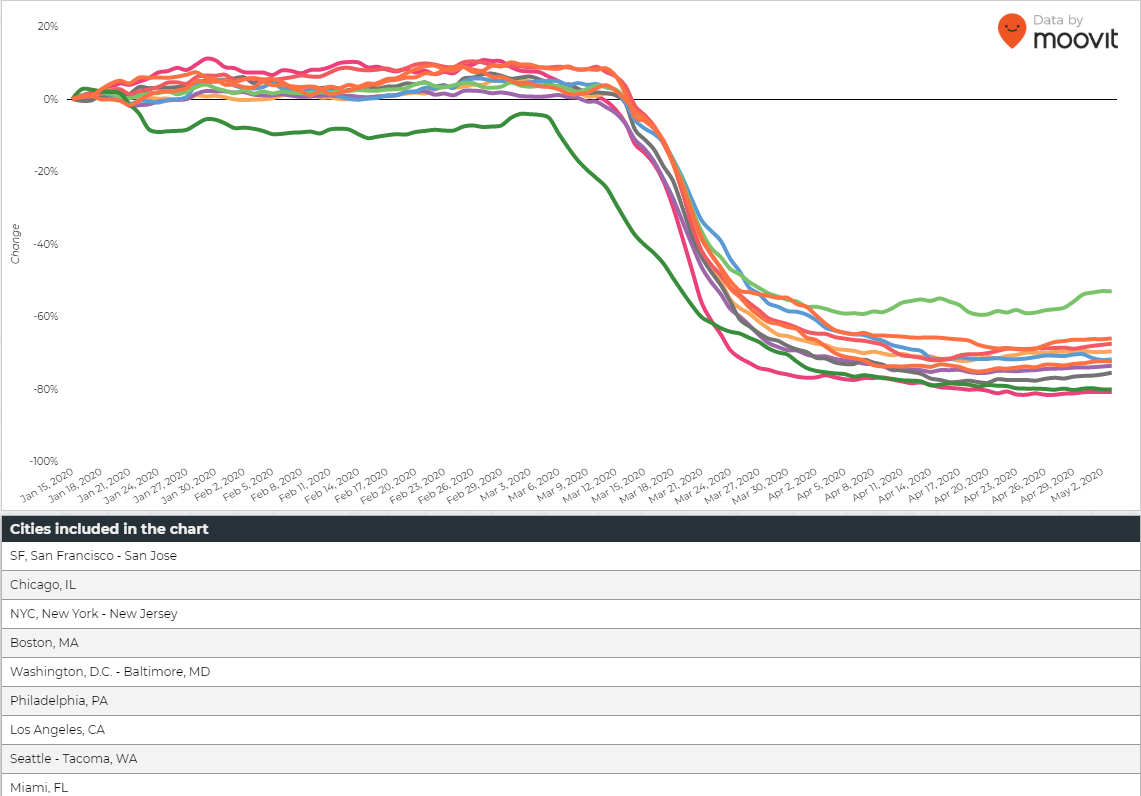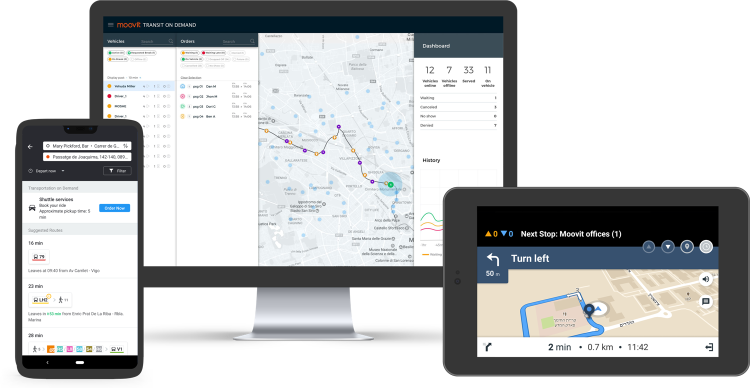Watch all the Transform 2020 sessions on-demand here.
Urban mobility company Moovit was looking to raise more capital before the COVID-19 crisis came along, with a senior Intel executive noting that Moovit had been gearing up to raise its first outside funding since Intel Capital led its $50 million series D round more than two years ago. Wendell Brooks, senior vice president of Intel and president of Intel Capital, also suggested that the pandemic played a part in the startup’s decision to sell.
The comments were made during an investors’ conference call yesterday.
“Nir [Erez, Moovit CEO] and his team were going to undertake another round of capital raising, then the pandemic hit,” Brooks said. “It caused us to continue discussions about how we [Intel/Mobileye and Moovit] might work more closely together and build on our existing relationship. And that turned into an M&A discussion that I think benefits both companies.”
In a follow-up statement from Moovit, a spokesperson confirmed that funding discussions had started months before the COVID-19 crisis hit, but said the pandemic did not have a direct impact on the company’s decision to sell to Intel.
June 5th: The AI Audit in NYC
Join us next week in NYC to engage with top executive leaders, delving into strategies for auditing AI models to ensure fairness, optimal performance, and ethical compliance across diverse organizations. Secure your attendance for this exclusive invite-only event.
Rumors of Intel’s offer to buy Moovit first came to light on Sunday, and Intel confirmed soon after that it was bidding around $900 million to buy the startup to bolster its Mobileye subsidiary’s ambitions in the driverless taxi realm. The deal made a great deal of sense, as there were already deep synergies between the two companies. Mobileye CEO Amnon Shashua sits on Moovit’s board of directors, Mobileye has used Moovit’s transit data since 2018, and Intel is an active Moovit investor. Oh, and both companies are based in Israel.
Lockdown
The timing of the acquisition is particularly notable. Global lockdown orders have put public transportation use at an all-time low — and Moovit’s business is essentially built around the flow of people and traffic in cities. Indeed, Moovit has published data highlighting the impact of COVID-19 on public transit usage in key cities around the world, showing that it has dropped by up to 80%.

Above: Moovit data showing the decline in public transit during COVID-19
Mobileye and Moovit were already closely aligned, and the sale price seems decent relative to the capital Moovit had previously raised. In other words, this doesn’t look like a fire sale prompted by a pandemic-driven global meltdown. But it’s easy to see how an offer from Intel at this particular juncture would be more tempting than it would have been three months ago.
In the past month, Moovit has sought to adapt its product to the current global crisis — launching an emergency mobilization platform that makes it easier for transit organizations to redeploy unused vehicle fleets for use by frontline workers. Moovit also made the platform available to corporations looking to arrange dedicated pickup services to transport essential employees to their place of work. But with so much uncertainty around the immediate future for cities and urban transport, selling to a trusted ally may well have been the safest option for Moovit.
From Intel’s perspective, the timing was likely more of a coincidence than anything else. The company had previously said it was targeting 2022 to debut the first of Mobileye’s mobility-as-a-service offerings, which will include a driverless ride-hailing business in Tel Aviv. And given the role Moovit’s gargantuan arsenal of mobility data will play in all of this, Intel needs to allow enough time to integrate the various technologies.
“The timing of the acquisition was done based on our confidence and maturity of our technology going forward for mobility-as-a-service,” Shashua said during yesterday’s call. “We believe that the timeline of 2022 is a very realistic timeline. And now, taking back the time of integration that will be required to integrate the Moovit value proposition into [our] mobility-as-a-service required that that acquisition would be done now.”
On a more somber note, the Moovit and Intel deal could well be a canary in a coal mine. While some tech industries are flourishing due to widespread lockdown and social-distancing measures, others are struggling. Demand for ride-hailing services is down, meaning Uber has had to expand its transport network into all manner of offerings. Just yesterday, a report emerged that Uber was looking to invest $510 million in electric scooter startup Lime at a valuation 79% lower than Lime’s previous one, with an option to buy it outright for a set price in the next few years. Electric scooter startups are struggling now, making the report plausible.
So while Moovit and Intel’s deal is a happy enough ending and might have happened at some point regardless of COVID-19, the same congruous circumstances won’t necessarily apply to other struggling startups in the months ahead.


